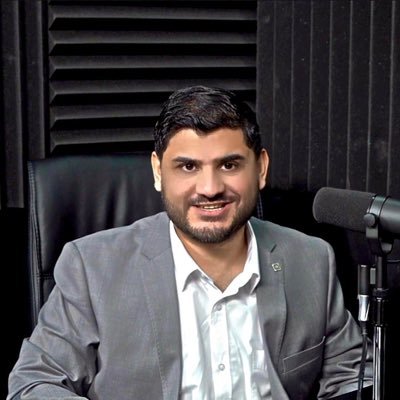🚨BREAKING: HEZBOLLAH DOMINATING ISRAEL ON THE GROUND
The Spaces discussed the ongoing conflict involving Israel and Lebanon, with a focus on recent military engagements and geopolitical implications. Key topics included the military strategies employed by both Israel and Hezbollah, and the role of the United States in the conflict. There was also discussion of the internal political dynamics within Israel, the U.S., and other regional players. Analysts discussed the potential for escalation, including the possibility of the U.S. being drawn into deeper military involvement. The conversation also touched upon the U.N.'s role and the broader impact of global geopolitics on the conflict.
Overview of the Discussion
This Twitter Space recording was a detailed analysis of the current geopolitical tensions, primarily focusing on Israel's activities in the Middle East, the potential for a broader conflict involving Iran, and associated global political implications. Key speakers were discussing recent developments in the region, potential military engagements, and their broader geopolitical impact, with a significant emphasis on the involvement of the United States and other global powers.
Geopolitical Tensions and Military Activity
- Current Military Situation: Discussions centered on significant military movements involving Israel and surrounding nations, with a specific focus on the Israeli-Hezbollah conflict.
- Hezbollah's Preparedness: Speakers highlighted Hezbollah's military readiness, noting its preparedness from lessons learned in past conflicts like the 2006 Second Lebanese War.
- Israeli Casualties: There was a detailed account of Israeli military casualties, with reports suggesting significant injuries despite Israel's technological superiority.
- Hezbollah's Drone Program: Speakers noted an increased use of optical cable drones by Hezbollah, which have successfully penetrated Israeli defenses causing significant damages and questioning the effectiveness of Israeli missile defenses.
US and International Involvement
- US Political Landscape: There was a notable discussion about the influence of pro-Israeli lobbying in US politics, with specific mention of figures like Joe Biden and Donald Trump and their administrations' policies.
- Military Logistics: Concerns were raised about the possibility of US personnel getting inadvertently involved in ground conflicts due to the ambiguous designation of 'military personnel'.
- International Alliances and Tensions: The conversation touched on other nations like Russia, Iran, and Turkey, and their potential roles in escalating or mediating the current tensions.
- Iran's Strategic Position: Iran's potential response to Israeli aggression was a heavily speculated topic, with expectations of possible retaliation against critical Israeli infrastructure.
- Egyptian and Iranian Diplomacy: Reports of Iran's foreign minister visiting Egypt were discussed as potential shifts in allegiances that could alter the regional power dynamics.
Broader Implications and Situational Analysis
- Possible Outcomes: There were various scenarios discussed regarding the potential escalation to a wider conflict or even a global power standoff, emphasizing the delicacy of the current situation.
- Risk of World War 3: Some speakers speculated about the broader implications of continued escalation, with concerns about drawing in major powers like Russia and the US into direct conflict.
- Media Influence and Public Perception: The role of mainstream media and its portrayal of the conflict was heavily critiqued, noting that narratives were often skewed towards pro-Israeli perspectives at the expense of Palestinian representations.
Political and Social Commentary
- US-Israel Relations: Speakers extensively discussed the complexity of US-Israel relations, emphasizing the political, social, and financial ties that underpin this strategic partnership.
- Public Opinion and Politics: There was a broad consensus about the shifting public perception in the US regarding unconditional support for Israel, driven by social media and grassroots movements highlighting Palestinian struggles.
- Jill Stein and US Election Dynamics: The conversation touched upon US political figures, with Jill Stein's recent statements regarding anti-Semitism and 9/11 being critiques for the role of political rhetoric in shaping public opinion and policy.
Conclusion
The session concluded with an appeal for continued awareness and realistic discussion of these issues, emphasizing the need for peace and a shift in global politics away from conflict-oriented strategies. There was a clear call for a restructuring of international diplomatic efforts to ensure greater accountability and peace in the region, with persistent calls for the acknowledgment of historical injustices and realignment of current political alliances.
